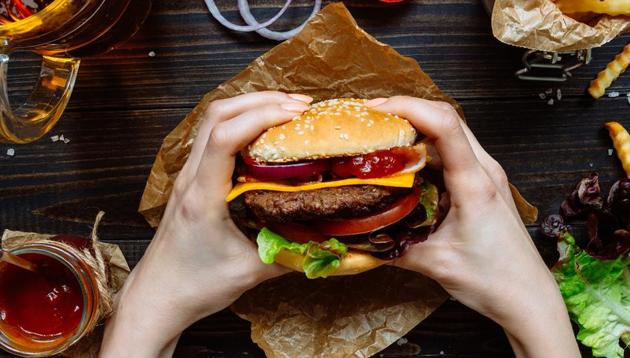Cancer prevention is based on the decisions we make every day, but the power of prevention is in a balanced lifestyle. A proactive approach to nutrition, lifestyle and screenings significantly reduces the risk of cancer and promotes long -term health.
The truth about cancer prevention:
In an interview with HT Lifestyle, Dr. Shubham Garg, Director – Surgical Oncology at Dharamshila Narayana Superspeciality Hospital in Delhi, shared: “A nutrient -rich diet that is rich in fruits, vegetables, wholemeal products and slim proteins plays a key role in protecting the body against damage. These foods offer essential antioxidants and vitamins that support immune function and reduce inflammation, a well -known factor for cancer development. “
He suggested: “The limitation of processed foods, red meat and sugar can further reduce the risk of chronic inflammation and promote general health. Physical activity is just as important. Regular exercise helps to maintain a healthy weight, strengthen the immune system and improve metabolic health – all crucial factors in cancer prevention. Studies show that moderate movement such as walking or swimming can reduce the risk of cancer such as chest, large intestine and lungs. “

In addition to nutrition and movement, Dr. Shubham Garg: “To cope with stress, get enough sleep and avoid harmful habits such as smoking and excessive alcohol consumption. These lifestyle decisions contribute to reducing the risk of cancer and improving general well -being. While genetics are outside of our control, the changes in the lifestyle are in our grip. Small, consistent actions – how to eat well, stay active and take care of mental health – can have a significant influence. Cancer prevention is a long -term commitment that enables us to take control of our health and reduce the risk of illness. “
These everyday foods can help prevent cancer
Dr. Anil Thakwani, consultant and senior oncologist from Sharacare-Health City, reinforced: “A nutritious diet that delivers rich in fresh fruit, vegetables, whole grain products and lean proteins supplies the body with essential nutrients that hinder cell damage. The limitation of processed foods, red meat and sugar reduces inflammation and reduces the risk of cancer. It is just as important to maintain an appropriate weight. Obesity is associated with several types of cancer, which regularly makes physical activity an important part of prevention. Press activities such as walking, yoga or swimming to keep your body active and your mind is stress -free. “
He warned: “Tobacco and excessive alcohol are significant cancer risk factors. Giving up smoking and preventing passive smoking and absorbing alcohol can drastically reduce these risks. Protecting yourself from harmful UV rays by wearing sunscreen and looking for shadows is essential for the prevention of skin cancer. Avoiding unnecessary radiological studies such as X-rays, CT scans etc. can reduce the risk. Screening tests and regular examinations can recognize abnormalities at an early stage and improve the results. In addition, the management of stress through mindfulness, meditation or hobbies strengthens immunity and improves general health. “

Dr. RR Dutta, Hod – Internal Medicine at Paras Health in Gurugram, recommended: “Eat a balanced diet that is rich in fruit, vegetables, whole grains and lean proteins and at the same time limited processed food, red meat and unhealthy fats. Integrate anti -inflammatory foods such as turmeric, green tea and berries to reduce the risk of cancer. Keep a healthy weight through portion control, mindful food and regular exercise, since obesity increases the risk of cancer. Stay active with at least 150 minutes of moderate or 75 minutes of strong movement per week to increase immunity. “
He came to the conclusion: “Avoid tobacco, stop setting the smokers and limiting alcohol consumption to reduce the risks. Minimize exposure to pesticides, pollutants and industrial toxins when using sunscreen (SPF 30+) for prevention of skin cancer. Manage stress with meditation, deep breathing and social connections to support immunity. Get regular screenings such as mammograms, PAP smears, colonoscopies and PSA tests and vaccinations against HPV and hepatitis B for early detection and prevention. “
Note to the reader: This article is only for information purposes and no substitute for professional medical advice. Always look for your doctor’s advice with questions about an illness.



